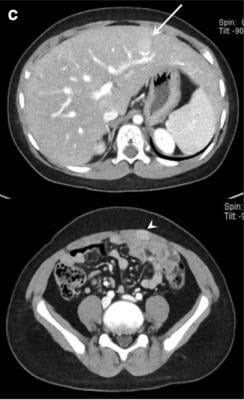
January 19, 2021 — Radiation exposure and side effects related to iodine contrast agents are the two main concerns of contrast enhanced computed tomography (CT) examinations. A new study published in European Radiology evaluates the image quality of low iodine concentration, dual-energy CT (DECT) combined with a deep learning–based denoising technique with ClariCT.AI for pediatric abdominal CT, compared with that of standard iodine concentration single-energy polychromatic CT (SECT). ClariCT.AI is an AI-based CT image denoising solution from ClariPi, Inc. The study reported that the use of a deep learning–based denoising technique was able to produce the same overall image and diagnostic quality of lesions despite a reduced iodine dose and decreased radiation dose. According to the study, the advantage of the low-concentration iodine use in conjunction with DECT and deep learning-based denoising was two-fold. The results show that the CT dose index and total iodine administration in DECT were respectively 19.6% and 14.3% lower than those in SECT.
The study method was done with DECT with 300 mg•I/mL contrast medium and was performed in 29 pediatric patients (17 boys, 12 girls; age, 2–19 years). The DECT images were reconstructed using a noise-optimized virtual mono-energetic reconstruction image (VMI) with a deep learning method. SECT images with 350 mg•I/mL contrast medium, performed within the last 3 months before the DECT, served as reference images. The quantitative and qualitative parameters were compared using paired t tests and Wilcoxon signed-rank tests, and the differences in radiation dose and total iodine administration were assessed.
The article concluded that ClariCT.AI deep learning-based noise-optimized VMI data using low iodine concentration (300 mg•I/mL) could maintain image quality while reducing radiation dose and iodine load. Therefore, this approach may be beneficial for pediatric abdominal CT scans.
For more information: www.claripi.com


 February 13, 2026
February 13, 2026 









